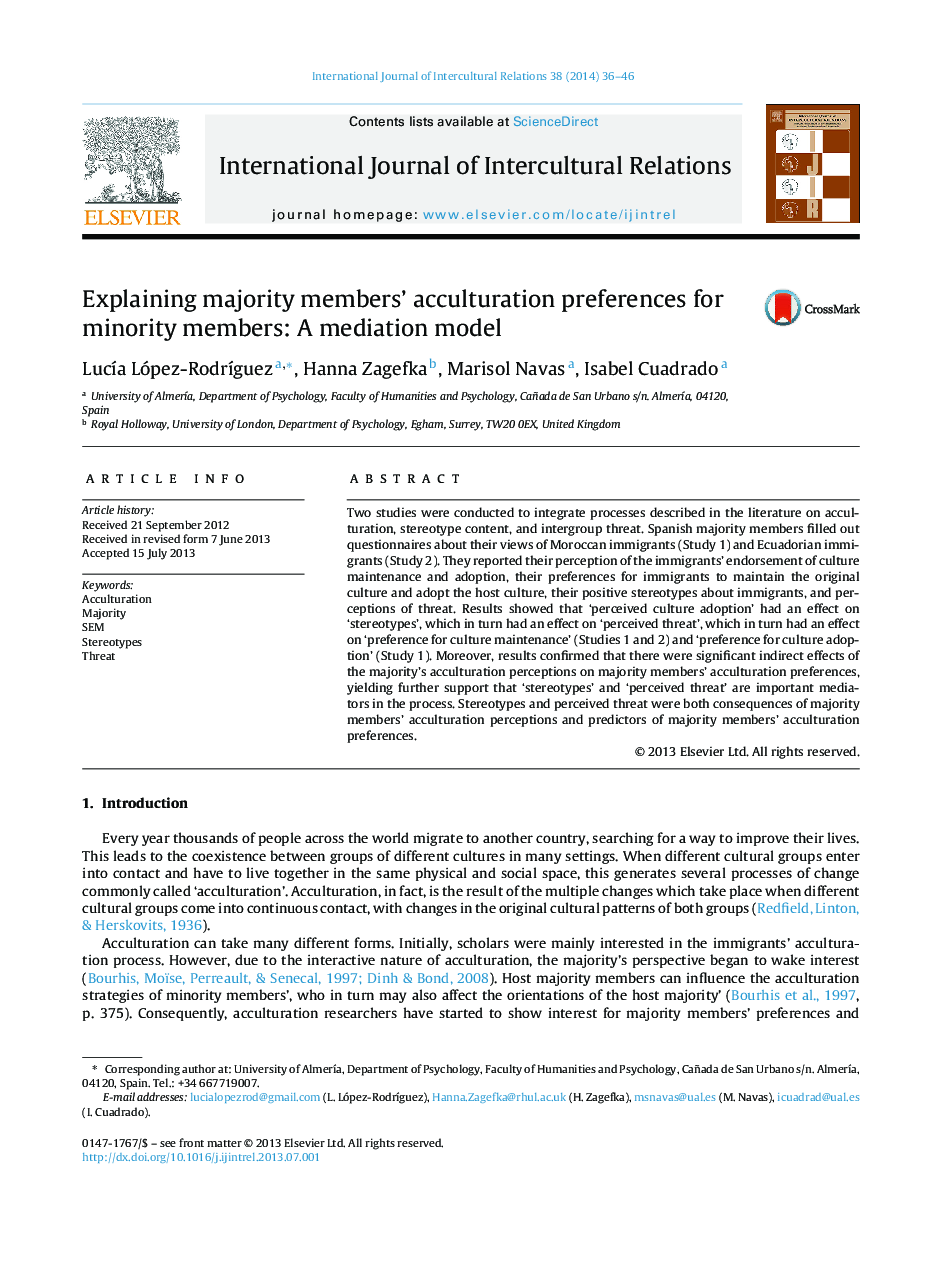| کد مقاله | کد نشریه | سال انتشار | مقاله انگلیسی | نسخه تمام متن |
|---|---|---|---|---|
| 947103 | 1475753 | 2014 | 11 صفحه PDF | دانلود رایگان |
• Two surveys assess Spanish majority members’ attitudes toward immigrants.
• A mediation model with several important psychosocial variables is proposed.
• The Majority's perception of immigrants’ cultural adoption predicts stereotypes.
• Stereotypes about immigrants, in turn, negatively predict perceived threat.
• Threat, in turn, predicts the majority's acculturation preferences for immigrants.
Two studies were conducted to integrate processes described in the literature on acculturation, stereotype content, and intergroup threat. Spanish majority members filled out questionnaires about their views of Moroccan immigrants (Study 1) and Ecuadorian immigrants (Study 2). They reported their perception of the immigrants’ endorsement of culture maintenance and adoption, their preferences for immigrants to maintain the original culture and adopt the host culture, their positive stereotypes about immigrants, and perceptions of threat. Results showed that ‘perceived culture adoption’ had an effect on ‘stereotypes’, which in turn had an effect on ‘perceived threat’, which in turn had an effect on ‘preference for culture maintenance’ (Studies 1 and 2) and ‘preference for culture adoption’ (Study 1). Moreover, results confirmed that there were significant indirect effects of the majority's acculturation perceptions on majority members’ acculturation preferences, yielding further support that ‘stereotypes’ and ‘perceived threat’ are important mediators in the process. Stereotypes and perceived threat were both consequences of majority members’ acculturation perceptions and predictors of majority members’ acculturation preferences.
Journal: International Journal of Intercultural Relations - Volume 38, January 2014, Pages 36–46
